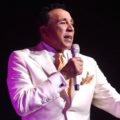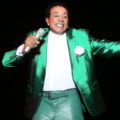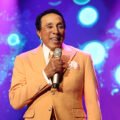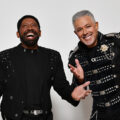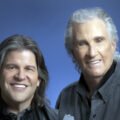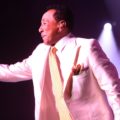It’s a Miracle: Smokey Robinson speaks Motown, “Gasms,” Genesee and groundbreaking moments
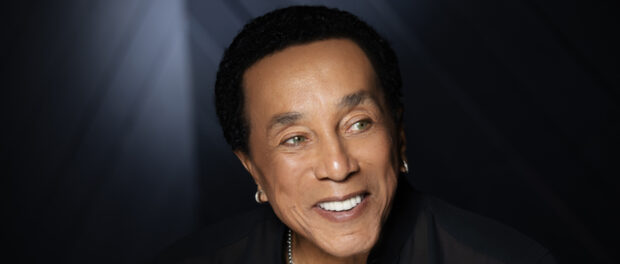 Photos provided by Smokey Robinson
Photos provided by Smokey Robinson
If there was a Mount Rushmore for songwriters, the poetic Smokey Robinson would be permanently etched in stone alongside the illustrious likes of Lennon–McCartney, Bob Dylan and all the key standards composers.
The Temptations’ “My Girl,” Mary Wells’ “My Guy,” Marvin Gaye’s “Ain’t That Peculiar” are a just a few of the more than 4,000 credits, in addition to fellow timeless tunes “You’ve Really Got A Hold On Me,” “The Tracks Of My Tears,” “Ooo Baby Baby,” “I Second That Emotion” and “The Tears Of A Clown” while fronting The Miracles throughout the 1960s and early ‘70s.
As if those weren’t enough, the Rock and Roll Hall of Famer did it all over again as a solo artist shortly thereafter into the ‘80s, ‘90s and now thanks to such textbook examples as “Being With You,” “Just To See Her,” “Crusin’” and “One Heartbeat.”
In other words, the Genesee Theatre is in for some serious smashes when the living legend, who continues to defy his 83 years of age, brings the “Music & Memories” Tour to Waukegan on Friday, December 29.
To “Get Ready” for the momentous occasion, Chicago Concert Reviews received an exclusive phone call from the man with “the slyest rhymes” and “the sharpest suits” to trace his Motown origins through the brand new “Gasms” collection, plus blazing tons of trails musically, culturally, racially and physically in the process.
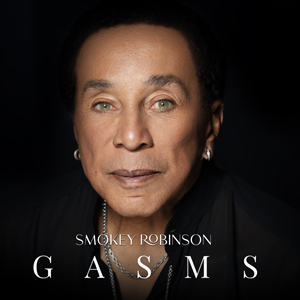 How would you describe your ties with the Chicago area?
How would you describe your ties with the Chicago area?
Smokey Robinson: Oh man, Chicago is very close to my heart because I had relatives in Chicago when I was growing up. It was like a drive from Detroit to Chicago. My mom and dad used to take me there all the time to see our relatives who lived there. My mother’s brother lived there, my uncle. I kind of grew up in Chicago. I used to come to Chicago all the time, even as a teenager, and spent the summer there. He lived on 63rd and Wabash. It’s not there anymore, but yeah, I spent a lot of time in Chicago man. The first theater that I ever started to play with The Miracles was the Regal Theater in Chicago, so yeah, Chicago’s a second home almost.
What’s on tap for the “Music & Memories” Tour this time around?
Robinson: Everything (laughs). Two hours of a party. Two hours of fun. Songs and fun, you know? We play everything we know. We play the old stuff, the new stuff. We just play and have a good time.
This also marks your first Illinois appearance after the release of the “Gasms” album. What would you like people to know about that project?
Robinson: I’d like them to come out to hear it (laughs). I’d actually like them to buy it (laughs), but yeah, it’s the first album of original material that I’ve had out in, gosh, I don’t know how long man, ten years or so. I just felt like it was time cause it had been such a long time. I wanted to create something controversial, so it’s “Gasms” man (laughs). Like I said, I hope people get it and enjoy it. We’re gonna be singing songs from it when we come to Waukegan.
What keeps you so prolific to the point where you now have 4,000 songs to your credit?
Robinson: I’m a firm believer in God man. I’m not a religious man, but I’m a firm believer in God and I think that God gives everybody gifts. Some people never discover their gifts. Some people discover them and squander them. Some people discover them and say, “I don’t want to do this.” But everybody gets a gift and I think that the gift He gave me was to be able to write songs, and to do music, so that’s what I attribute it to.
How do you decide what songs to keep for yourself and the ones you offer to others?
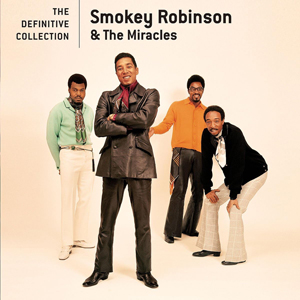 Robinson: Well, I don’t offer songs to other artists. When you hear one of my songs by another artist, I’ve written that song specifically for that artist. I don’t stockpile songs and say, “Oh, this would fit so and so.” When you hear one of my songs by another artist, I have written that song specifically for that artist.
Robinson: Well, I don’t offer songs to other artists. When you hear one of my songs by another artist, I’ve written that song specifically for that artist. I don’t stockpile songs and say, “Oh, this would fit so and so.” When you hear one of my songs by another artist, I have written that song specifically for that artist.
What was it like as Motown and The Miracles were getting off the ground?
Robinson: It was heavy man. It was heavy. We were the first group at Motown when Berry [Gordy] started Motown. We were there before he even started Motown, so it was just the beginning man. A lot of energy going on. A lot of young people coming by to audition, to be signed up, hustle and bustle, and music.
At what point did you realize you were all going to impact popular culture and change the entire nation to such a widespread extent?
Robinson: After we’d done it (laughs). Yeah, after we had done it man. We were just young people making music and we didn’t realize the barriers that we were going to break down with it, but we did and I’m so proud of that. I’m so proud of the fact that we integrated music and places down South where when we first [went] there, they were segregated. The white people were in one section. The Black people were in the other section. White people were upstairs. Black people were downstairs and vice versa. [There were] ropes down the center so they couldn’t be next to each other and stuff like that.
We started going down there, and then after a year or so of that, all the ropes came down. The barriers came down. There would be white boys with Black girlfriends, Black boys with white girlfriends. All the kids were dancing together, so we broke it down with music. Dr. Martin Luther King [Jr.] came to Motown and he said, “Hey man, I’m coming because I want to record my ‘I Have A Dream’ speech here. You guys are doing with music what I’m trying to legislate.” So I’ve been a part of that man.
What are some of your personal Motown milestones?
Robinson: I think the fact that I was there on the very first day man. I was there on the very first day and it became my life. It put me on the map as an artist, and as a songwriter, and [gave me] all the fame that I was dreaming of as a kid that I thought was impossible for me.
How would you trace the transition from leading a group into your solo career?
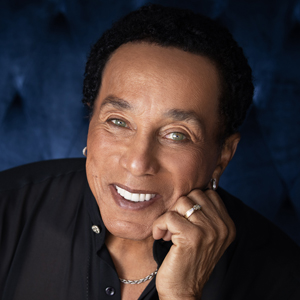 Robinson: Well, I had no intention of having a solo career. When I left the Miracles man, I figured, “Well, okay, I’m done.” I was Vice President of Motown and that means I had to go to the office every day cause I had been on the road since I was 16-years-old. The Miracles and I had done everything a group could do. We had done it two or three times man. We’d been all over the world and I was actually tired. Then my then wife, who was one of the members of The Miracles, Claudette and I, we had had seven miscarriages man, and my only son was born. When he was born, he became the most precious person to me in life, so I didn’t want him to not know me cause The Miracles are now on the road 85 percent of the time, so I didn’t want to be on the road all the time while he was growing up. I wanted to see his first steps and hear his first words. Then shortly after, two years later, my daughter was born, so I wanted to be with my kids and my family, so I decided I was going to retire and do that.
Robinson: Well, I had no intention of having a solo career. When I left the Miracles man, I figured, “Well, okay, I’m done.” I was Vice President of Motown and that means I had to go to the office every day cause I had been on the road since I was 16-years-old. The Miracles and I had done everything a group could do. We had done it two or three times man. We’d been all over the world and I was actually tired. Then my then wife, who was one of the members of The Miracles, Claudette and I, we had had seven miscarriages man, and my only son was born. When he was born, he became the most precious person to me in life, so I didn’t want him to not know me cause The Miracles are now on the road 85 percent of the time, so I didn’t want to be on the road all the time while he was growing up. I wanted to see his first steps and hear his first words. Then shortly after, two years later, my daughter was born, so I wanted to be with my kids and my family, so I decided I was going to retire and do that.
It just so happened that I had written a song for The Miracles that I wanted to just give to them, give each one of them a copy of it, a song called “Sweet Harmony,” which was directed at them telling them that they could still go on and do it without me because they were great singers, and they were great people, and they didn’t need me to be successful. That’s what the song is about and the lady who was our A&R director at Motown convinced me the world should hear that because they should know that’s how I felt about The Miracles. After convincing me to put the record out, then she said, “Well, you’re gonna need an album to go with this record.” And we put an album out, [1973’s “Smokey”]. There was a song on there written by my former guitarist, who’s passed on now, Marv Tarplin, who was the source of so many songs for me, called “Baby Come Close” and it became like a hit. It was not my intention though. My intention was to never be on stage again, was to never record my voice again. If I was going to record, I was going to record somebody else and produce some records on some other artists like that, but not on myself. I was going to do my vice presidency thing and be with my family, but after three years or so, that did not work for me man.
In what ways do you feel your sound has remained consistent and how is it changed throughout the decades?
Robinson: I couldn’t tell you that man. I write from the heart, and I write from my soul, and what I feel, so I don’t know if it’s changed or not, or what the difference would be. But when I write, I always try to write a song man. I don’t just want to write a hit record. I want to write a song, cause if I write a song, the treatment I give it the first time on myself or another artist may not be a hit, but if it’s a song, twenty years from now, somebody could pick it up and say, “oh, this is a great song” and record it on somebody, and become a hit.
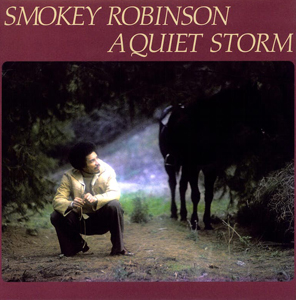 You’re even responsible for the start of the entire “quiet storm” radio format of smooth R&B ballads. How did that develop?
You’re even responsible for the start of the entire “quiet storm” radio format of smooth R&B ballads. How did that develop?
Robinson: I think it’s a blessing. It’s beautiful. It’s flattering. I cannot tell you how that makes me feel man because “Quiet Storm” happened because of the fact that one day, like I said, I was Vice President. I’d go to the office every day. I’m miserable, but I don’t tell anybody I’m miserable. I don’t tell my wife. I don’t tell Berry. I don’t tell anybody because I don’t want them to think that I’ve given up on just doing my vice president thing and being at home with the kids…One day after about three years or so, Berry came to my office. “Hey man, I need you to get out of here. I need you to go do what you do cause you’re miserable. I see it in you. You’re my best friend, so I want you to get out of here.”
So I came back and I said, “Okay, if that’s the case, then I’m going to try and take the show business by storm.” I’m a quiet singer, and then I thought, “Well, wait, maybe ‘Quiet Storm.’ That’s a great idea.” So I started the song ‘Quiet Storm’ and my youngest sister, [Rose Ella Jones], who was still 14 years older than me, was a great songwriter and a great lyricist. I put the first verse in, and I kicked it to her, and said, “Can you finish this up because I’m going to be working on the rest of the album?” So I did that, and then “Quiet Storm” came out, and it became a radio format!
What are a handful of your quintessential or favorite Smokey Robinson songs?
Robinson: I don’t have favorites man. They’re all my children, you know what I mean? I don’t have favorites cause I give them all the same effort. I give them all the same consideration. It’s never finished to me ‘til its finished…If I could tell you what my favorite song was, it would probably be a song I had absolutely nothing to do with writing. I love music. I love songs. I’ve loved them all my life since I was a baby. I grew up hearing [Aaron] Copland, [George and Ira], the Gershwin brothers and people like that in my house. Then later on, [Jerry] Leiber and [Mike] Stoller, Burt Bacharach and Hal David, people like that. There were a lot of influential people as far as me writing songs.
Can you think of anything about yourself that fans may be surprised to learn?
Robinson: Oh gosh, after all these years (laughs). I don’t know man, and see, now the telephone (laughs), everybody has their own. Even little kids have their own phone. There was a time when you could lie about your age. There was a guy named Jack Benny. He was a comedian and he had a TV show. Jack Benny was 39 for 39 years! You can’t do that nowadays because all people have to do is take that phone and look you up (laughs). “When was Smokey Robinson born?” and it’s gonna tell you. You can’t get away from your age, but you don’t have to be that. See, age is just a number as far as I’m concerned. It’s just chronologically. Here I am, I’m 83-years-old and I feel like I’m 50. That’s a blessing.
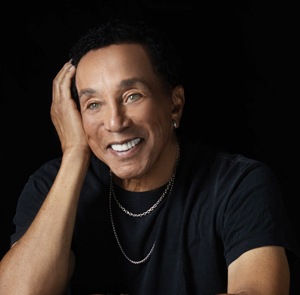 What’s your secret to staying in such great shape vocally and physically?
What’s your secret to staying in such great shape vocally and physically?
Robinson: My secret is exactly what I’m getting ready to do as soon as I finish this phone call with you. I workout everyday man, or just about every day. I work out and I’ve been doing yoga for 40 years. That’s my first thing that I do when I get up in the morning. I stretch my body, I do my yoga, and then I go down to the gym, and I work out because I want to keep myself in as good a shape as possible. I don’t ever want to be old man. I don’t want people to have to carry me around. I don’t want to be that man, so I try to keep myself in shape so I can be mobile, and I can be flexible, and I can be all the things that are gonna keep me healthy for as long as I’m here.
Do you have anything left you’d like to create or achieve that you haven’t already?
Robinson: I would like to have a great part in a great movie. I’m not talking about the star of the movie or anything like that, just a great part in a great movie. I would love to do that.
What about a movie or Broadway show about your life?
Robinson: We’re in the process right now. The biopic is in works right now, and after the first of the year, we’re going to start working on the play.
Ultimately, what do you hope people will take away from your life and legacy?
Robinson: That I was a good person who loved music and gave it my best.
Smokey Robinson performs at the Genesee Theatre on Friday, December 29. For additional details, visit SmokeyRobinson.com and GeneseeTheatre.com.

